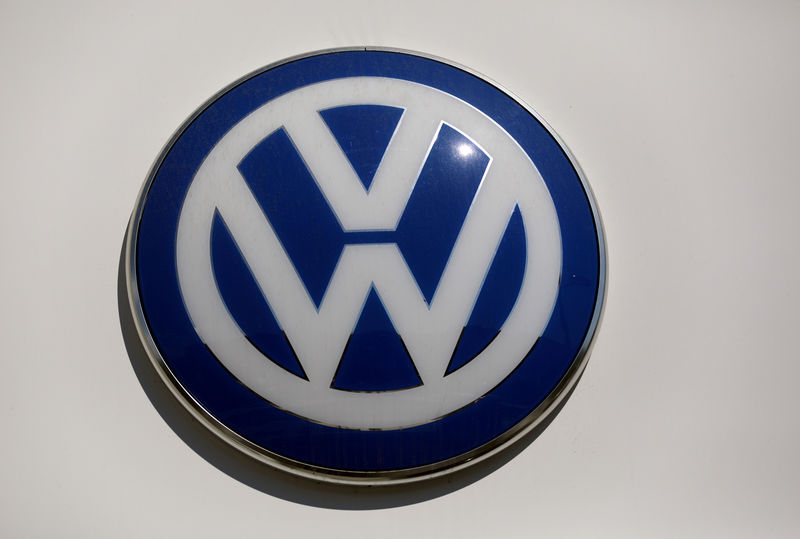LEIPZIG, Germany (Reuters) - Volkswagen (DE:VOWG_p) will create joint ventures and help finance battery production to persuade skeptical cell suppliers to back its aggressive push for mass producing electric vehicles, board member Stefan Sommer told Reuters.
VW has said it will buy 50 billion euros ($56.57 billion) worth of battery cells and has identified Sweden's Northvolt, South Korea's SKI (KS:096770), LG Chem (KS:051910) and Samsung (KS:005930) SDI (KS:006400) as well as China's CATL (SZ:300750) as strategic partners.
"Not every supplier is convinced that electric mobility will come on such a large scale. You need to spend more time convincing them to invest in the auto industry," Sommer told Reuters.
Volkswagen said that by 2025, it needs 150 gigawatt hours worth of battery production capacity in Europe and another 150 in Asia. By 2030 this figure will double.
"These producers need to prioritize between making a new smartphone or building a new battery factory. So even the battery cell producers are asking: will production volumes scale up quickly?," he said.
The German automaker is retooling 16 factories to build electric vehicles and plans to start producing 33 different electric cars under the Skoda, Audi, VW and Seat brands by mid-2023.
Customers have been slow to adopt electric vehicles in large numbers because of the limited operating range and long battery recharging times, and because of a lack of charging infrastructure. This has spooked potential suppliers.
"When it comes to normal components, suppliers have the opportunity to sell to other car makers, if VW buys less. But with electromobility we all know: if it does not work for VW, then it won't work for others," he said.
This is why VW provides suppliers with finance for tooling and shares the risk of installing new production capacity by making new factories a joint venture.
"The tendency is to do joint ventures. The suppliers are still asking themselves, is this market going to take off or not? Meanwhile they realize it is an opportunity," he said.
Joint ventures have the advantage of giving VW an early insight into manufacturing progress as a new plant is erected.
"We have built up our own expertise, which we share with suppliers, which helps when we build a new plant. It gives us an early indication if there are teething problems," Sommer said.
"We have not been able to build as many cars as we wanted to. Our supplier is not delivering the numbers that we need."
From 2021 Volkswagen will use electric battery cells using a composition of nickel, manganese and cobalt in a ratio of 8:1:1, Sommer said, adding that one supplier was still using a ratio of 6:2:2.
For the Chinese market, Volkswagen sees potential for using lithium Iron based batteries, known as LFP. These have lower energy density than NMC cells, but Chinese drivers tend to stay within large cities and do not travel long distances by car.
"The necessity for a long operating range is less important in China," Sommer said.
Solid state electric battery cells will replace NMC cells and become mass production ready in the second half of the 2020's, Sommer said.
"Solid state cells can be made in existing battery factories. It will be the same producers and the same factories where solid state batteries are made," Sommer said adding that round 60 percent of the tools can be reused for next generation cells.

Volkswagen may even build its own battery cell manufacturing plants in China, Sommer said, but added that for now the car maker is relying on its Chinese joint venture partners FAW , SAIC (SS:600104) and JAC (SS:600418) to find suitable battery suppliers.